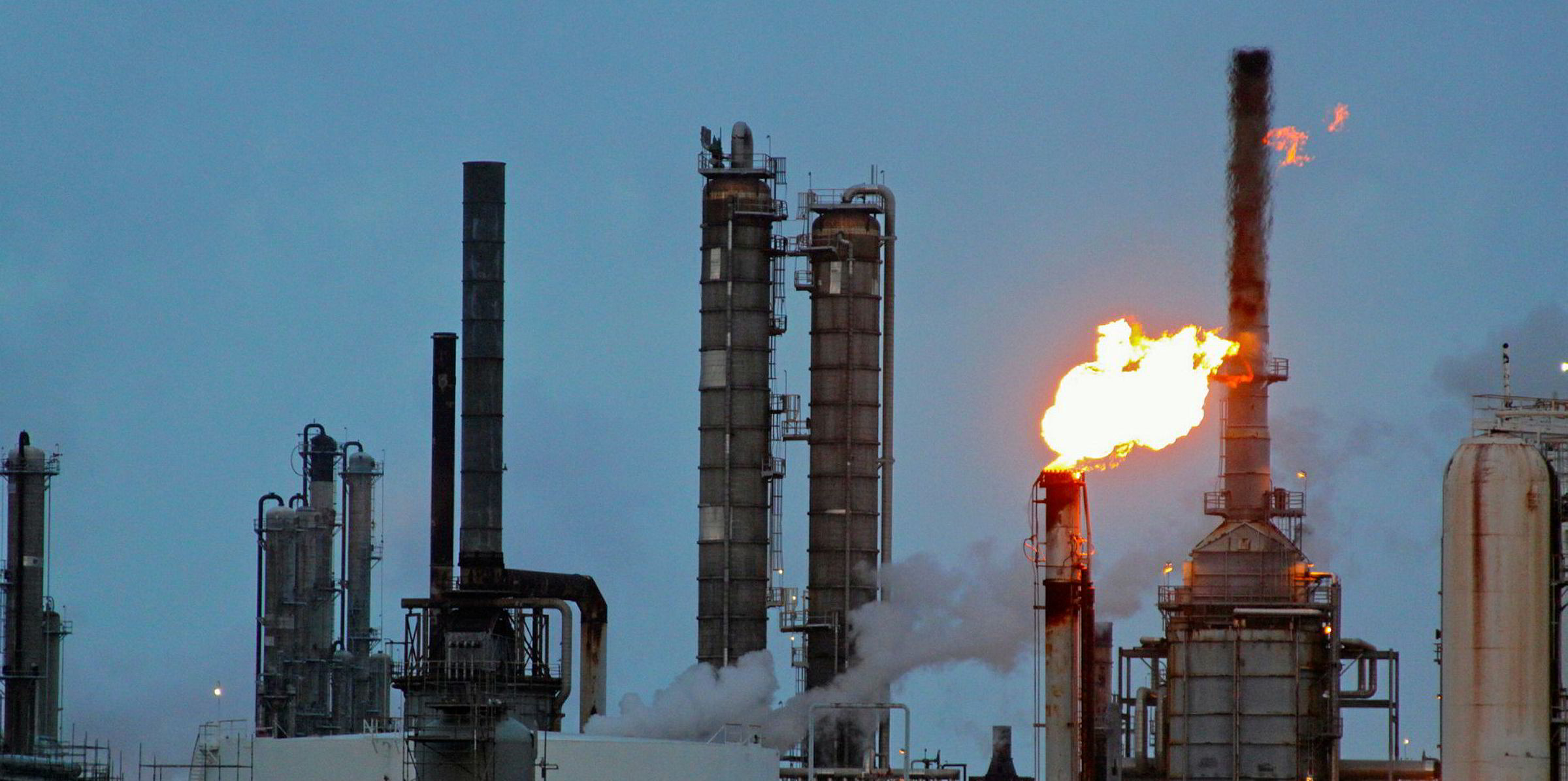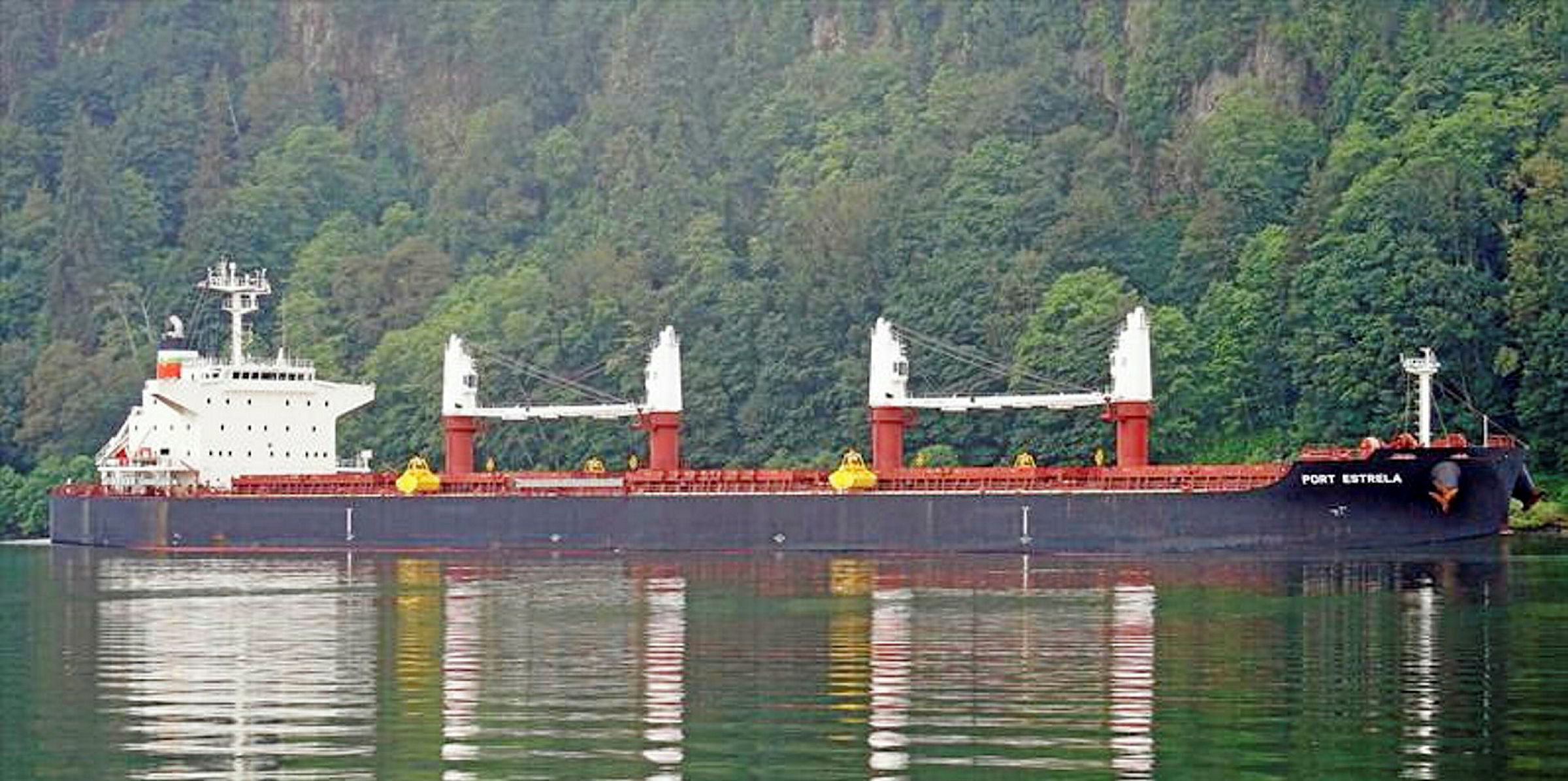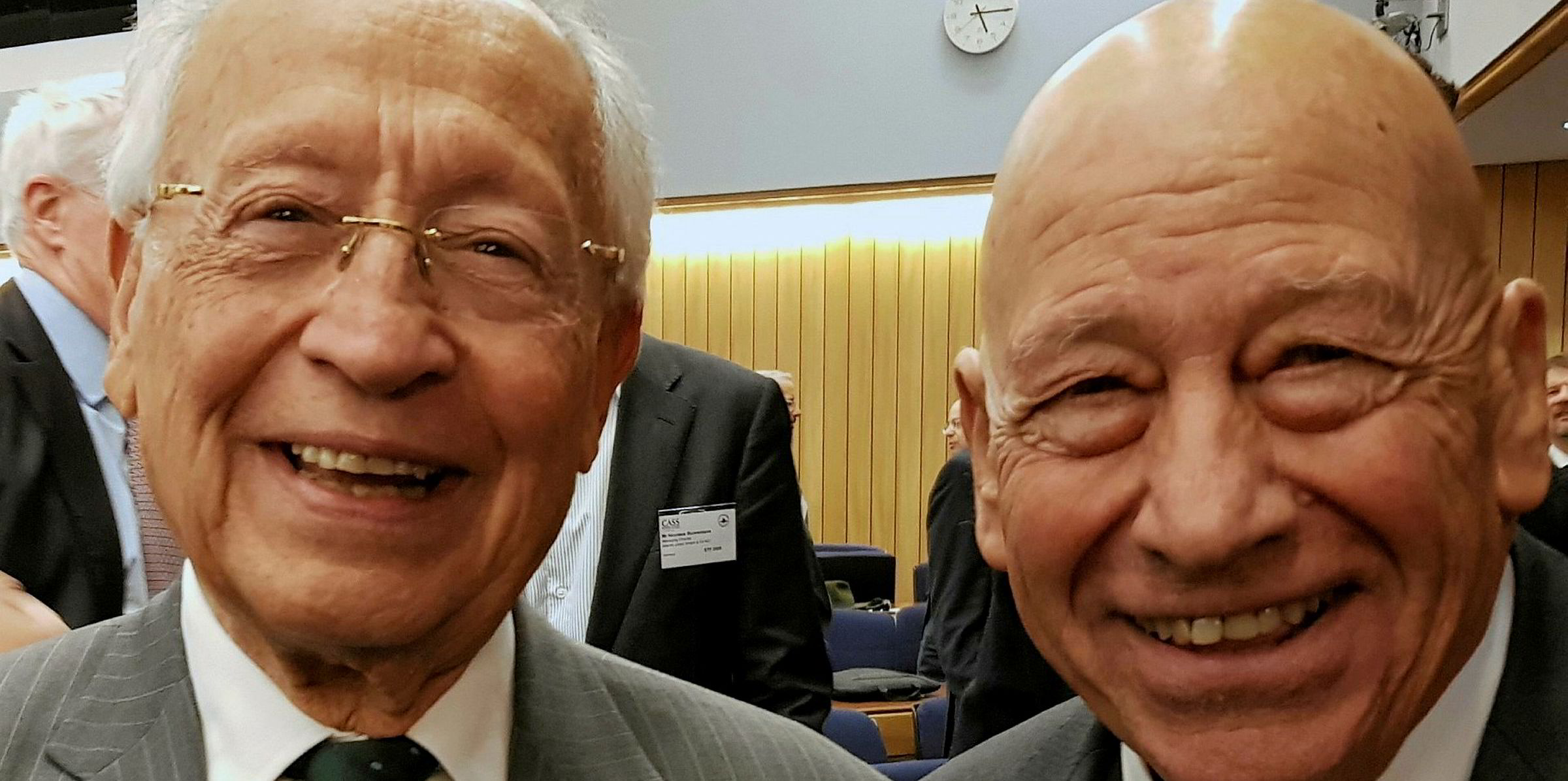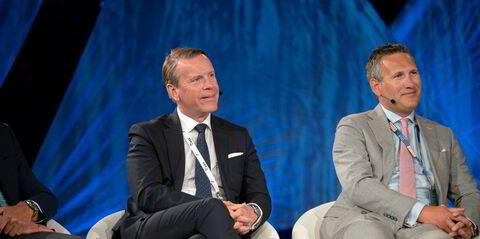The IMO should exert more pressure on refineries to produce low-carbon fuel so the roadmap for shipping decarbonisation can be simplified, according to some shipowners.
Endeavouring to cut greenhouse gas emissions from international shipping by half from 2008 before 2050, member states of the IMO are still discussing which decarbonisation measures should be adopted in the decades ahead.
“I would rather they target the sources of what we put into the engines,” said shipowner Houda Ghandour from Hermes Marine.
“I hope they can track the sources and learn from the problems with scrubbers,” Ghandour told TradeWinds at the sidelines of the 35th Anniversary of the Costas Grammenos Centre for Shipping, Trade and Finance meeting.
When establishing the regulations for the 2020 sulphur cap, the IMO decided to allow the continued supply of high-sulphur fuel oil (HSFO) to vessels installed with scrubbers.
This has prompted complaints from some shipowners, including Greek tycoon George Procopiou, who reckoned such a measure gives free rein to refineries that produce polluting HSFO. Meanwhile, shipowners are asked to shoulder the main responsibility in fighting pollution.
While the decarbonisation of shipping is expected to require technical and operational measures as well as low-carbon fuel, Procopiou stressed that the IMO should target refineries more in its regulatory efforts.
“How are we going to meet the target? We are completely lost in the target and don’t know where we are going. It’s up to the refineries to make the quality fuels,” said Procopio, who controls more than 120 tankers, bulkers and LNG carriers via various vehicles.
While embracing the idea of green shipping, Procopio has called on shipowners’ associations, classification societies and other stakeholders to present a collective view to the IMO on how to decarbonise shipping in phases.
“Then we have a diagram. Then we know where we are going,” Procopio said. “We want better ships. We want better engines…But we must go step by step.”
Otherwise, the industry would just be “going round and round in cycles” when debating on decarbonisation measures, according to Procopio.
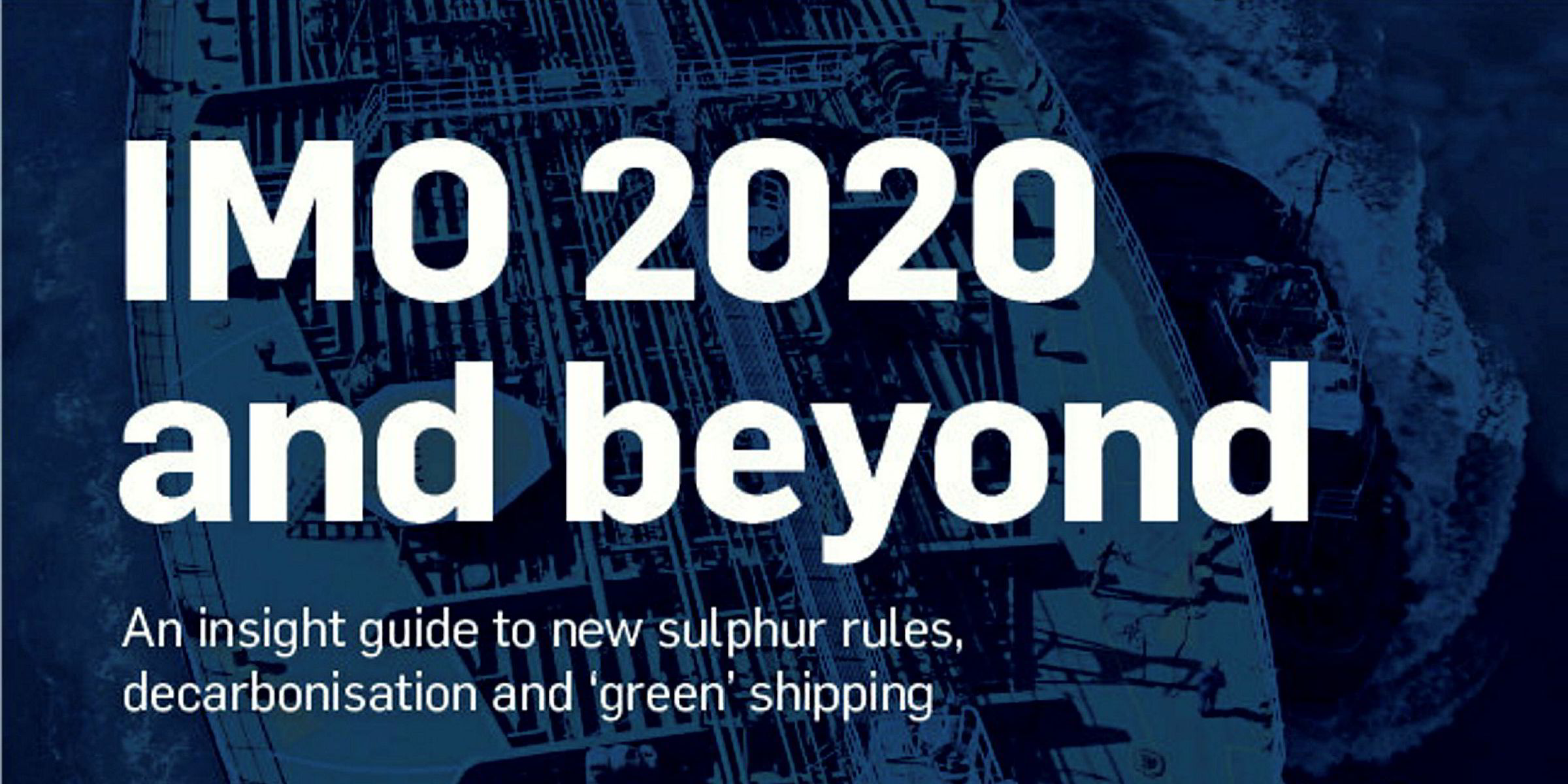
Check out TradeWinds Knowledge http://bit.ly/35g4KZ1, our new research project on IMO 2020 and decarbonisation
